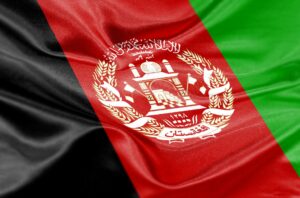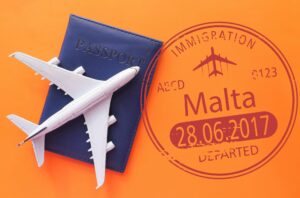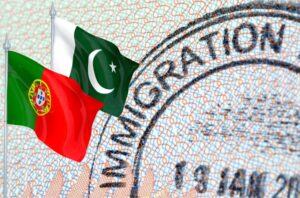If you’re pondering the question, “How to migrate to Malta from UAE?” you’re on the path to embarking on a new chapter in the heart of the Mediterranean. This article guides you through the intricate process of moving from the UAE to the Maltese Islands, providing key insights into the necessary steps and considerations for a smooth transition.
Whether you’re drawn by Malta‘s rich culture, robust economy, or the allure of its lifestyle, understanding the legalities, from visa types to residency programs, is paramount. We’ll delve into the practicalities of settling in, including securing employment, finding a home, and integrating into the Maltese community, ensuring that your move is a dream and a well-executed plan.
Malta Migration Basics
Eligibility Criteria for Emigrants from UAE
If you’re in the UAE and considering a move to Malta, it’s important to know if you’re eligible. To migrate from the UAE to Malta, you’ll need to meet certain requirements, which can vary based on the visa or residency program you’re applying for. Typically, if you’re not from the EU, including those from the UAE, you’ll need a valid visa to enter Malta.
The Central Visa Unit (CVU) manages the visa process, ensuring applications follow the ‘Common Consular Instructions on Visas.’ You must have a valid passport or equivalent travel document that’s recognized for border crossing. Are you planning to visit on a visa or stay for over three months? Then you’ll need a National Long-stay “D” visa.
For shorter visits, a Schengen visa will do the trick. Plus, if you’ve got a Resident Permit from another EU Member State or Malta for a specific purpose, you could enter Malta as a third-country national.
Types of Maltese Visas Available
There’s a variety of visa types for those looking to make the move to Malta from the UAE. The Short-stay “C” visa, or Schengen visa, lets you stay up to 90 days for tourism or business within six months. Need to stay longer? You’ll require the National Long-stay “D” visa.
You’ll also find visas for family reunification, study, retirement, and the Malta nomad and residence visa and permit for remote workers. The Malta EU Blue Card is a residence permit that allows highly skilled non-EU nationals to work in Malta. Remember, visa applications must be submitted at the diplomatic mission of the country you’re planning to be your main destination, and they have to be filled out in writing with all the necessary details.
The Maltese Residency and Visa Programme (MRVP)
The MRVP offers you a way to get residency in Malta with the perk of visa-free travel across the Schengen zone. You’ll need to invest in property or sign a rental agreement that meets certain minimum values. You can also apply for long-term residency if you meet some extra requirements.
With the MRVP, you can live, work, and settle in Malta for as long as you like. After 5-6 years, you can become a Maltese citizen. This program is quite appealing because of Malta’s affordable, tax-friendly jurisdiction, access to the EU’s economy, and top-notch health services.
Malta Citizenship by Investment
The Malta Citizenship by Investment Program 2024 is perfect for those who want a secure EU relocation option with a quick residency process. You’ll need to make a substantial economic contribution, which includes investing in property, donating to a Maltese organization, and a one-time government contribution. You’ll also need to hold a valid residence card, be healthy, and pass due diligence checks.
You can include your dependents in your first application form, and you’ll need to show you have enough annual income or capital. The program has an annual cap to maintain its exclusivity. Once you’re successful, you’ll have the right to live, work, and study in Malta and get visa-free travel within the EU.

Preparing for Your Move to Malta
Documentation Required for Migration Process
Compiling the necessary documentation is a critical step in your relocation process. Alongside your passport or residence permit, you should prepare proof of your local address, such as a utility bill or a government-issued letter, and your Tax ID to demonstrate your fiscal responsibilities.
Evidence of your connection to Malta, such as a job contract, property deeds, or enrollment in educational institutions, will also be required. These documents will facilitate a seamless transition and compliance with local laws.
Health and Travel Insurance for Expats
While Malta’s healthcare system is publicly funded, expatriates are encouraged to secure international health insurance to ensure comprehensive coverage. This is particularly pertinent as local health plans may only encompass some medical services. Prior to departure, a medical check-up for any necessary immunizations is advisable. Although hospitals in Malta provide emergency care without charge, international health insurance can protect against substantial medical expenses.
Financial Considerations and Bank Accounts
Organizing your financial affairs includes setting up a bank account for monetary transactions and currency exchange to euros. Malta’s financial landscape offers a spectrum of banking institutions, including both local and major international banks.
Some banks offer the convenience of opening an account remotely, which is beneficial if the bank operates in both the UAE and Malta. For non-resident accounts, which may require more effort to establish, considering a global bank that provides multi-currency accounts accessible prior to your relocation could be advantageous.
Monitoring service charges, such as ATM usage fees and international transfer costs, is crucial. By comparing these expenses across various banks, you can choose an option that aligns with your financial needs and potentially reduces outgoings.
Learning the Language and Cultural Etiquette
Although Maltese is the official language, its complexity can pose a challenge for newcomers. Utilizing resources like the Maltese for Foreigners series, which includes textbooks featuring dialogues, grammar, and vocabulary, can aid in language acquisition. These resources often include audio recordings to assist with pronunciation.
Understanding and respecting local customs is equally important. The Maltese typically dress conservatively and value punctuality differently. When visiting a Maltese home, scheduling in advance and bringing a small gift, such as wine, chocolates, or flowers, is customary. Engaging in polite conversation during meals and expressing gratitude to your host is expected, with the norm being to open presents in the giver’s presence.
Adapting to Malta’s leisurely pace may require patience. Punctuality for social engagements is less stringent, and this relaxed approach extends to public transportation, where bus schedules are not always precise. The island’s climate is characterized by warm summers and occasional intense rainfall, so newcomers should be prepared for a range of weather conditions.

The Legal Migration Process
Appointing an Accredited Agent
Engaging an accredited agent can facilitate your transition to Malta. They will assist in navigating the complexities of the migration process and ensure adherence to the country’s immigration regulations.
They are responsible for assembling your paperwork, which may involve securing an invitation letter from a Maltese entity if your move is employment-related. They will also verify that all prerequisites for a visa application are fulfilled.
Submitting Your Visa Application
The submission of your visa application is a pivotal step. A thorough compilation of supporting documents is crucial for a successful business visa application.
A passport with a minimum of six months’ validity and two blank pages is mandatory. A police clearance certificate is also a prerequisite. Demonstrating financial stability through bank statement statements is required.
Arrangements for accommodation, such as a hotel booking, must be provided. A health insurance policy with a minimum coverage of USD 32,700 is obligatory. For employment purposes, a letter confirming your job offer is necessary.
Ensuring your application is without errors is important to prevent any hold-ups. The time taken to process applications can differ based on various factors.
Attending Your Visa Interview
The visa interview allows Maltese officials to evaluate your intentions and qualifications. It’s conducted in English, and you’ll be expected to discuss your background and the purpose of the visit.
Candor is crucial during this stage. It’s advisable to dress appropriately to convey a good impression. The interview typically lasts a short duration.
Be prepared to present any additional required documents if requested. Punctuality for your appointment is important, and rescheduling is usually an option if necessary.
Tracking and Finalizing Visa Approval
After the interview, the embassy will require time to deliberate on your application, which can take around 20 business days.
Embassies generally provide a service to monitor the status of your application online. You will be notified once a decision has been reached.
Upon approval, you must retrieve your passport with the visa. However, this does not guarantee entry, as the border officials make the final decision on the visa fee upon your arrival.

Settling In Malta as a UAE Expat
Finding Employment or Starting a Business
For UAE expats, establishing a source of income is crucial. The Maltese economy offers a range of job prospects in sectors such as hospitality, production, and IT. Its geographical position also makes it an attractive hub for commerce.
Entrepreneurs will appreciate the supportive climate for new ventures, with various incentives available. However, it’s essential to familiarize yourself with the distinct market conditions and business regulations.
Housing Options: Renting vs. Buying Property
Choosing between renting and purchasing a residence is a significant decision for expats. Renting provides flexibility, which is beneficial if you’re still familiarizing yourself with the island or are not yet prepared for a long-term commitment.
Conversely, investing in Maltese real estate can be beneficial due to the market’s resilience. Prospective buyers should thoroughly research the housing market, taking into account factors such as location, proximity to amenities, and access to public services.
Educational Institutions for Children
For those moving with children, selecting an educational institution is a priority. Malta offers a variety of public, church, and international schools, providing education in both of the island’s official languages.
Public schools do not charge tuition and are widespread. Church schools typically request donations rather than fees. International schools offering programs like the International Baccalaureate have tuition fees that can be approximately €3,700 annually.
Considerations when selecting a school include the curriculum offered, the language of instruction, and the institution’s accreditation.
Healthcare Services and Facilities
Access to healthcare is a vital aspect for expats. Malta’s healthcare system includes Mater Dei Hospital as the primary public provider, supported by a network of health centers and clinics. Non-EU nationals will require private health insurance, which is also recommended for faster access to specialized treatments and advanced medical technologies.
The healthcare system in Malta is well-regarded for its effectiveness and quality.

Embracing the Malta Lifestyle
Social and Community Integration
Becoming active in the local community is essential for a smooth transition to Maltese life. Organizations such as SOS Malta play a pivotal role in promoting social inclusion, advocating for the rights of marginalized groups, and encouraging social entrepreneurship and corporate social responsibility. The Maltese government has been proactive in this area, launching its first integration strategy in December 2017.
This strategy outlines a holistic approach to integration, focusing on governance, equality, and combating discrimination, with actions including enhancing integration-related online resources, coordinated plans across ministries, and studies on the needs of vulnerable populations.
The integration initiative began in July 2018 and is a complimentary, optional service offered to TCNs when they arrive in Malta. It consists of two parts: the Pre-Integration Certificate and the Integration Certificate. Completion of this initiative is a criterion for achieving long-term residence status.
Climate and Environment Adaptations
Adjusting to Malta’s climate, characterized by its warm summers and mild winters, is part of the acclimatization process for newcomers. The scarcity of natural resources has led to innovative approaches to water supply, with desalination plants providing a significant portion of the country’s potable water.
Accessing Public Services and Utilities
Access to essential services is a cornerstone of life in Malta. The healthcare system, with its roots in public-financed care, ensures a broad spectrum of treatments without direct charges. While the system is tax-funded, expatriates should have comprehensive insurance to cover services not included in the public provision. The EHIC is available for EU citizens, while non-EU individuals should secure insurance that includes coverage for medical treatments and possible evacuations.
Permanent Residency and Citizenship
Malta’s appeal as a residence has led to the introduction of various residency and citizenship schemes. The Malta Ordinary Residence Programme requires a physical presence of at least 183 days per year. The Malta Global Residence Programme offers non-EU/EEA/Swiss nationals a special tax status. At the same time, the Malta Single Permit provides TCNs the opportunity to reside and work in the country.
The Nomad Residence Permit, launched in 2021, caters to those embracing a remote working lifestyle.
For permanent residency, the Malta Permanent Residence Programme allows non-EU nationals and their dependents to obtain residency through investment. The Granting of Citizenship for Exceptional Services by Direct Investment Regulations also enables foreign nationals to gain citizenship by contributing to the nation’s economic growth, showcasing Malta’s efforts to attract foreign investment and skilled individuals.
Your New Beginning in Malta
Embarking on your journey from the UAE to Malta is an exciting adventure filled with new opportunities and experiences. With the right preparation—from securing the appropriate visa to understanding the nuances of Maltese life—you can ensure a smooth transition to your new Mediterranean home. Whether for the short-term or with an eye towards permanent residency, Malta’s warm climate, rich history, and welcoming community are just a few of the rewards that await.
Meticulous planning, from financial management to cultural integration, lays the groundwork for a successful move. Utilize the resources and consider professional guidance to navigate the legalities and logistics. As you close one chapter and begin another, we’re here to help you realize your Maltese dream. Welcome to Malta, where your new life beckons.
FAQs
Can I Apply for a Malta Residency From Dubai?
Yes, individuals in Dubai can apply for Malta residency through the Malta Permanent Residence Programme (MPRP), designed for non-EU, non-EEA, and non-Swiss nationals. This residency-by-investment program requires investments in property and government contributions. Applicants must meet financial stability criteria, have a clean criminal record, and not pose any threat to national security. The process typically takes 4 to 6 months from the submission of a complete and correct application.
Can I Work in Malta with a Tourist Visa?
No, working in Malta with a tourist visa is not permitted. Tourist visas are strictly for short-term visits and do not grant the right to engage in employment in Malta. To work legally, one must obtain the appropriate work permit or visa that authorizes employment.
Can I Drive in Malta With a UAE License?
Yes, individuals with a driver’s license issued outside of the European Union, including those from the UAE, are authorized to drive in Malta with their national driver’s license for up to 12 months from their last entry date into the country. This allows for seamless mobility for new residents and visitors holding valid driving licenses from their home countries.
How Can I Apply for a Malta Work Permit from UAE?
Applying for a Malta work permit from the UAE involves securing a job offer from a Maltese employer and then applying for a Single Permit, which combines a work visa and residence authorization. The applicant must submit various documents, including a valid passport, proof of accommodation, health insurance, and an employment contract. Initially, a long-stay visa (D visa) is required to enter Malta, after which one must apply for the permit through the Identity Malta Agency.





